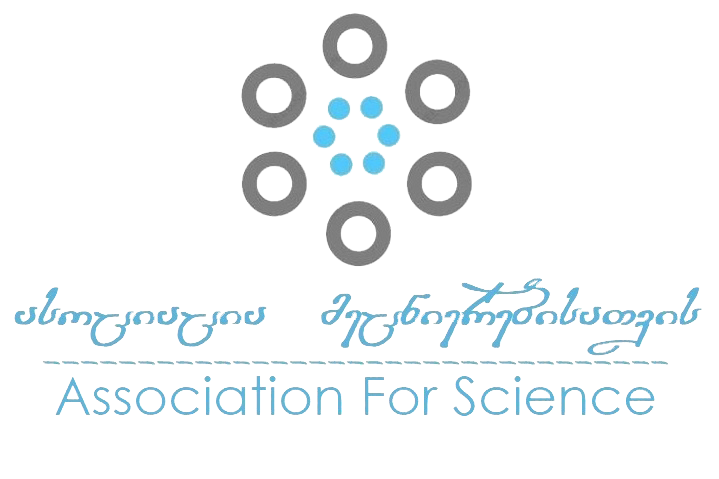What is Impact of the August 2008 War to The Georgia’s Democratization Process
DOI:
https://doi.org/10.52340/sou.2023.21.04Keywords:
Democratization, Georgia, State Building, Reforms, Rose Revolution, August 2008 WarAbstract
The First Independent Republic of Georgia (1918-1921) can be said to be the first step taken by the Georgian nation towards democracy. In the late Soviet Georgian Republic, when the Georgian nation was intertwined with political phenomena, the consciousness of democratization reasserted itself. After the declaration of independence on April 9, 1991, a very traumatic period was entered politically, and preserving territorial integrity became a priority issue for the Georgians. In the early years of independence, the newly established Georgian state struggled with ethnic nationalist conflicts on the one hand and economic development on the other. As a matter of fact, the state-building process was delayed and institutional reforms were only possible in the 2000s. The road map of Georgia’s democratization process has been tried to be revealed. The August 2008 War is analyzed in terms of its impact on Georgia's democratization process. In this context, the impact of Russia’s policy to maintain its hegemony on Georgia is discussed. The aim of this study is to analyze the reform efforts in the state-building process in Georgia and to discuss the role of the Rose Revolution in this process.
References
CEC Election Administration of Georgia (2012), “CEC, Report on the Elections of the Parliament of Georgia 2012”, https://www.cesko.ge/en/-archevnebi/2012 (15/01/2023);
Darchiashvili, David (2005), “Georgian Defense Policy and Military Reform”, Bruno Coppieters and Robert Legvold (Eds), Statehood and Security: Georgia after the Rose Revolution, (117-151), Cambridge/Mass., MIT Press;
Huntington (2011) Samuel P. Huntington, Üçüncü Dalga 20.yy. Sonlarında Demokratlaşma, çev., Ergun Özbudun, Ankara, 2011, pp. 19-25;
Mitchell, Lincoln (2008), “What was the Rose Revolution For?, Understanding the Georgian Revolution”, Harvard International Review, 27 Feb. 2008;
Nodia, ( 2017) Ghia Nodia, Democracy and its Deficits: The path towards becoming European-style democracies in Georgia, Moldova and Ukraine, CEPS, Thinking ahead for Europe, No 2017/12, Dec 2017;
Przeworski (1995) Adam Przeworski, Sustainable Democracy, Cambridge University Press, 1995, p. 5;
Saakashvili (10.07.2005) President Saakashvili adresses South Ossetia conference, 10.07.2005, http://www.saakashviliarchive.info/en/ PressOffice/Ne¬ws/SpeechesAndStatements?p=2744&i=1;
Saakashvili (15.06.2010) Saakashvili on Ruling Party’s Vision, 15.06.2010, https://civil.ge/archives/120293;
Saakashvili (16.02.2005) Speech delivered by President Saakashvili at Tbilisi Ivane Javakhishvili State University, 16.02.2005, http://www.saakas¬hviliarchive-.info/en/PressOffice/News/SpeechesAndStatements?p=2773&i=
Saakashvili (16.09.2008) Saakashvili Speaks of ‘New Wave’ of Democratic Reforms, 16.09.2008, https://civil.ge/archives/117486;
Saakashvili (24.02.2005) President Saakashvili’s annual address to the Parliament, 24.02.2005, http://www.saakashviliarchive.info/en/ PressOffice/News-/SpeechesAndStatements?p=2770&i=1;
Stepan and Skach (1993) Alfred Stepan and Cindy Skach, Constitutional Frame-works and Democratic Consolidation: Parliamentarianism versus Presi-dentialism, World Politics, Vol. 46, No. 1 (Oct., 1993), pp.1-22;
U.S. Announces, (05.11.2004) U.S. Announces New Military Assistance Program for Georgia, 05.11.2004, https://civil.ge/archives/106519;
UNDP assessment (May, 2010) UNDP, Assessment of Developments Results Evaluation of UNDP Contribution Georgia, May, 2010, p.10;
Üzgel, İlhan (2006), “Nato’nun Genişlemesi”, Baskın Oran (Ed.), Türk Dış Politikası II, in (309), İstanbul.



